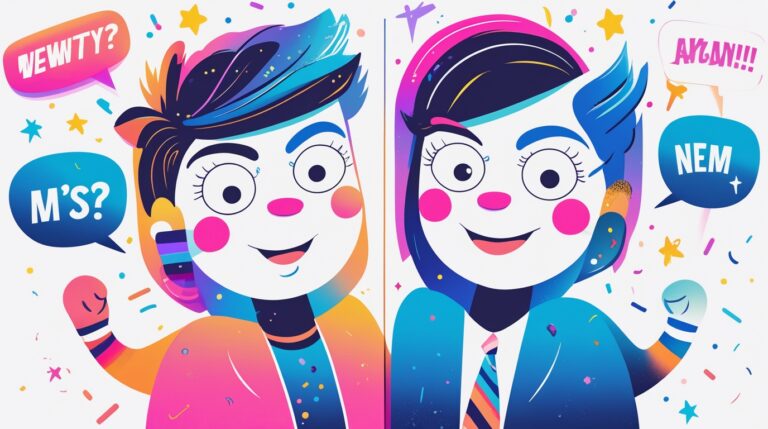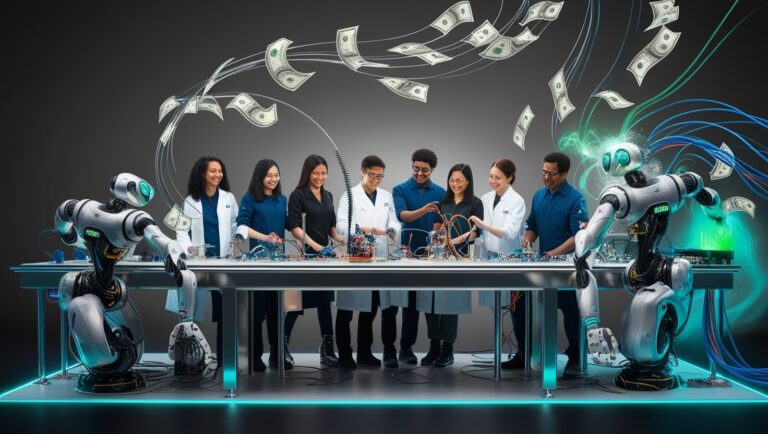In today’s fast-paced, ever-evolving world, the concept of lifelong learning has become more important than ever. With rapid technological advancements, changing job markets, and evolving industries, it’s essential to continually upgrade skills and knowledge throughout life. Lifelong learning encourages individuals to embrace learning opportunities beyond traditional education, enabling them to stay relevant and competitive. One powerful way to achieve this is through micro-credentials and modular courses, which provide a flexible and efficient way to develop new skills, enhance expertise, and advance careers.

1. What is Lifelong Learning?
Lifelong learning is the ongoing, voluntary pursuit of knowledge and skills throughout an individual’s life. It encourages a mindset of continuous improvement and adaptability, ensuring individuals can keep up with new developments in their personal and professional lives.
As industries evolve, the demand for new skills increases, making it necessary to maintain and expand knowledge throughout one’s career. Lifelong learning can take many forms, from formal education to informal self-directed learning. The goal is to maintain relevance, adaptability, and curiosity as individuals navigate their careers and personal growth.
2. Micro-Credentials: A Key to Efficient Learning
What Are Micro-Credentials?
Micro-credentials are short, focused learning programs designed to teach specific skills or knowledge. Unlike traditional degrees, which can take years to complete, micro-credentials allow individuals to earn credentials for specific skills or competencies in a much shorter time frame. These certifications are often provided by universities, professional organizations, or online platforms, and they can cover a wide range of topics, from digital marketing to project management.
Benefits of Micro-Credentials:
- Focused Learning: Micro-credentials focus on specific skills, making them ideal for people looking to develop targeted expertise quickly.
- Flexibility: Learners can earn micro-credentials at their own pace, fitting learning into their busy lives without the need for a long-term commitment.
- Career Advancement: Micro-credentials help individuals enhance their resumes by showcasing their expertise in a particular area, increasing their value in the job market.
- Cost-Effective: Compared to traditional degree programs, micro-credentials are often more affordable, offering high-value learning without the financial burden of extended study.

3. Modular Courses: Building a Personalized Learning Journey
Modular courses break down learning into bite-sized, manageable units that can be completed independently or combined to form a complete learning pathway. These courses are especially beneficial for lifelong learners who may not have the time to commit to full-time study but still want to continuously upgrade their skills.
How Modular Courses Work:
- Self-Paced Learning: Modular courses allow learners to progress at their own pace, completing modules when convenient for them. This flexibility makes it easier for individuals to balance work, family, and personal commitments while continuing their education.
- Stackable Learning: Learners can combine individual modules to earn a certificate or even build a pathway toward a degree. This “stackable” approach allows individuals to gradually accumulate knowledge without feeling overwhelmed.
- Variety of Topics: Modular courses span a wide range of subjects, from technology and business to health and the arts. This variety makes it easy for individuals to choose areas of interest or align courses with their career goals.
4. The Importance of Lifelong Learning in the Modern World
a. Adapting to Technological Change:
With rapid advancements in fields like artificial intelligence, machine learning, and data science, the need for continuous learning is more critical than ever. Lifelong learning allows individuals to stay up-to-date with new tools, techniques, and technologies, ensuring they remain competitive in their careers.
b. Career Flexibility and Advancement:
Lifelong learning opens doors to career mobility. Whether transitioning to a new field or advancing in a current one, the ability to acquire new skills quickly and efficiently through micro-credentials and modular courses enhances professional growth. Workers can adapt to new job roles or industries, minimizing the risks of career stagnation.
c. Personal Growth and Fulfillment:
Lifelong learning isn’t just about professional development—it’s also about personal enrichment. Learning new skills or pursuing a passion project can boost self-esteem, improve cognitive function, and promote mental well-being. The act of learning itself can bring a sense of achievement and fulfillment.
5. The Role of Technology in Lifelong Learning
The rise of online learning platforms, mobile apps, and digital resources has made lifelong learning more accessible than ever. These technologies allow learners to access high-quality education from anywhere, anytime. Platforms like Coursera, edX, and LinkedIn Learning offer countless courses, including micro-credentials and modular programs, that cater to a wide array of interests and skill sets.
Why Technology Matters:
- Accessibility: Online platforms provide learners with the flexibility to study from home, at work, or on the go, making it easier to integrate learning into daily life.
- Personalized Learning: Many online platforms use AI and data analytics to provide personalized learning experiences, adapting course materials based on the learner’s pace and progress.
- Global Reach: Technology enables learners from all over the world to access educational opportunities that may not have been available to them otherwise.
6. Lifelong Learning for Employers and Organizations
Employers can benefit significantly from fostering a culture of lifelong learning within their organizations. Offering access to micro-credentials and modular courses for employees helps businesses stay competitive by ensuring their teams have the skills necessary to meet evolving demands. It also enhances employee satisfaction and retention, as workers feel empowered to grow and advance their careers.
Benefits for Employers:
- Improved Workforce Skills: Access to targeted learning ensures that employees acquire the exact skills needed to keep the organization at the forefront of industry trends.
- Employee Retention: Offering opportunities for growth through education increases job satisfaction, helping employers retain talented individuals who are invested in their own development.
- Adaptability: A workforce that embraces lifelong learning is more adaptable and agile in the face of change, leading to greater innovation and problem-solving capabilities.
7. The Future of Lifelong Learning
As the pace of change accelerates and industries continue to evolve, lifelong learning will become even more essential. Micro-credentials and modular courses will likely play an even larger role in helping individuals stay competitive. More educational institutions, businesses, and organizations will invest in flexible, accessible learning pathways to ensure that people can continue upgrading their skills throughout their careers.
In the future, we may see more integration of AI, gamification, and immersive technologies like virtual reality (VR) and augmented reality (AR) in learning experiences, making education even more interactive and engaging.

Conclusion: Lifelong Learning as a Career and Life Strategy
Embracing lifelong learning through micro-credentials and modular courses is a powerful strategy for career success and personal growth. As industries evolve, the need for continuous skill development will only increase, and by committing to lifelong learning, individuals can stay relevant, adaptable, and fulfilled throughout their careers. With technology making learning more accessible than ever, the future of education is open to everyone.





